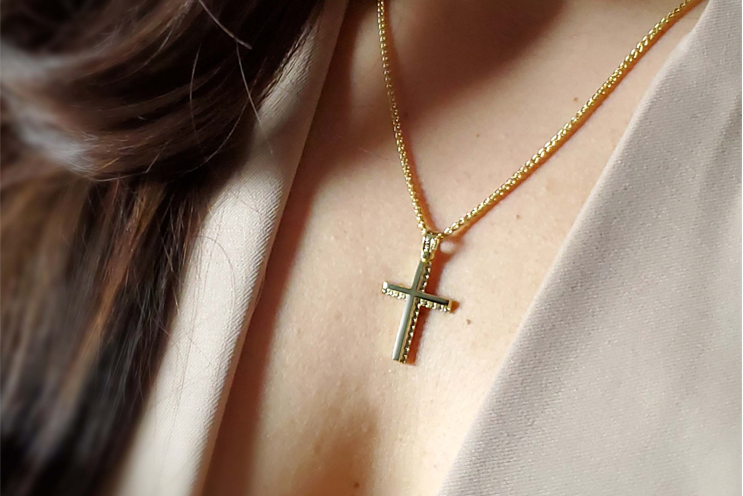The symbol of the cross, which traces its origins to the crucifixion of Jesus Christ, has long been a powerful representation of the Christian faith. It is uncertain when Christians began wearing crosses as jewelry, but today it is a common sight. Many people receive cross necklaces as gifts for religious rites such as baptism and confirmation, and in some Christian religions, the cross is blessed by a priest. The crosses are often worn as a reminder of the sacrifices made for humankind and as a sign of commitment to the faith. However, it has also become a popular fashion accessory among people of all religions.
While some people wear crosses as a religious expression, others view them as a symbol of their belief in God but do not attend church. A cross necklace or tattoo can be seen as a way to express one's faith and the pride associated with it.
In recent years, there has been a trend in Canada towards removing religious symbols from public spaces, particularly in the workplace. The province of Quebec has even passed legislation banning religious symbols for most public workers, including crosses and Muslim headscarves. Although there has been significant opposition to the law, polls indicate that it is supported by the majority of people in the province.
As this trend continues to evolve, it will be interesting to see how it affects those who wear crosses. For many Christians, the cross holds deep religious significance, and it is important for society to recognize that the small metal cross many people wear on a chain represents something much greater than themselves.

